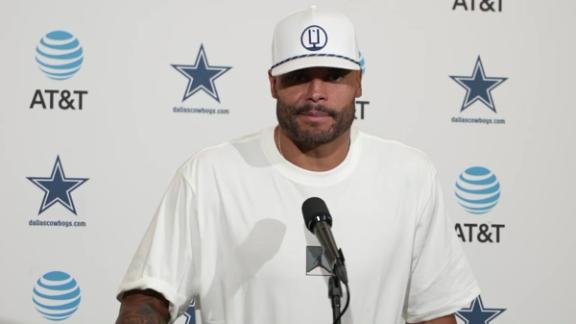The Super Bowl 2026 is already shaping up to be one of the most controversial events in NFL history. Following comments from former Trump advisor Corey Lewandowski suggesting that ICE would conduct immigration crackdowns during Bad Bunny’s halftime show, Dallas Cowboys quarterback Dak Prescott has found himself at the center of a firestorm.
Prescott, widely regarded as the face of the Cowboys and one of the league’s most respected leaders, stunned the public when he issued a statement condemning the idea. “We stand with the fans, and we will not support the politicization of music and sports. The Super Bowl should unite, not divide,” Prescott declared.

While many fans and advocacy groups praised him for defending immigrants and standing against fear-based politics, the backlash has been swift and severe. Critics, particularly Trump allies and conservative commentators, accused Prescott of “betraying America” and putting politics above patriotism. Some even called for boycotts of Cowboys games, demanding that the NFL “discipline” Prescott for his remarks.

Political pundits on cable news quickly seized on the controversy, framing Prescott as either a cultural hero or a national traitor. The divide mirrors broader tensions in American society over immigration, identity, and the role of athletes in politics.
The NFL has so far declined to comment officially, though insiders suggest the league is concerned about the political overtones overshadowing the game. With Bad Bunny’s global fanbase and the Super Bowl’s massive platform, the halftime show is no longer just an entertainment spectacle — it has become a flashpoint in America’s ongoing culture wars.
For Dak Prescott, the stakes are higher than ever. While his words have inspired millions, they have also placed him directly in the crosshairs of one of the most heated debates in the nation. Whether he will be remembered as a bold leader or condemned as a controversial figure remains to be seen — but one thing is certain: Super Bowl 2026 will not be easily forgotten.